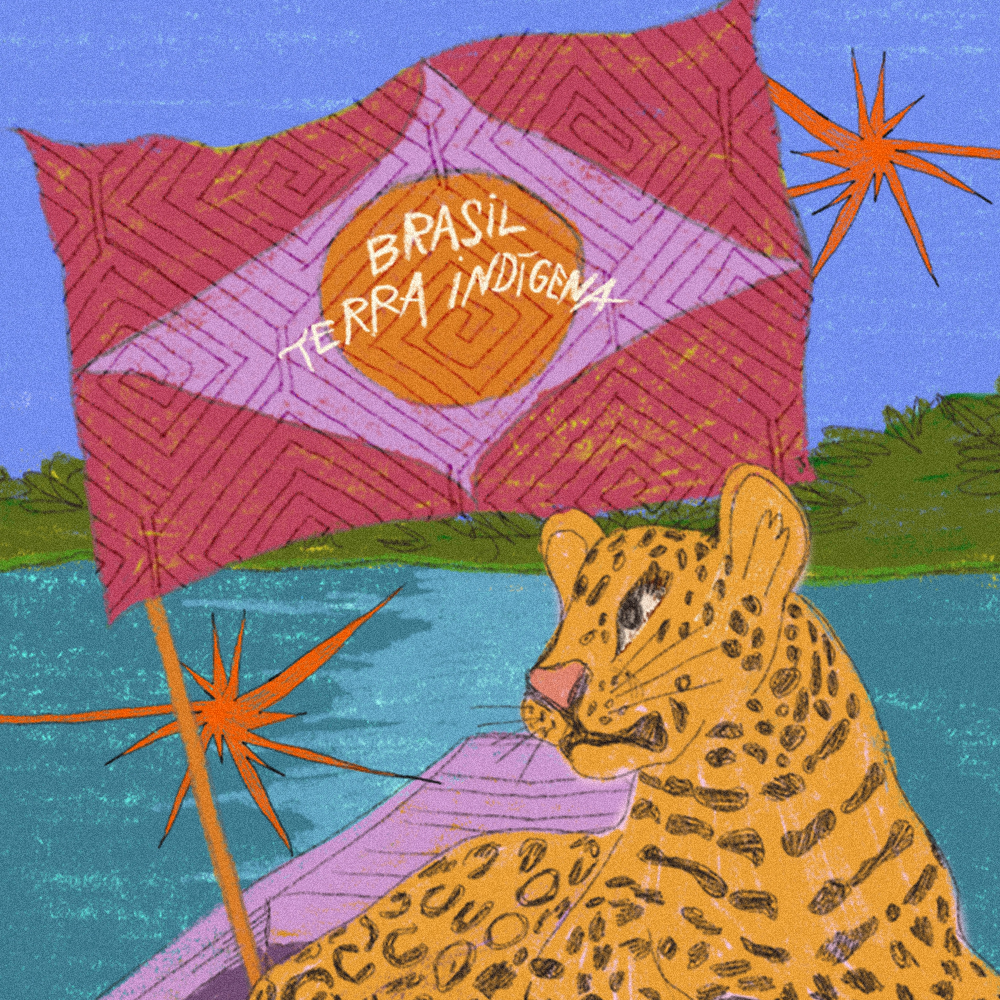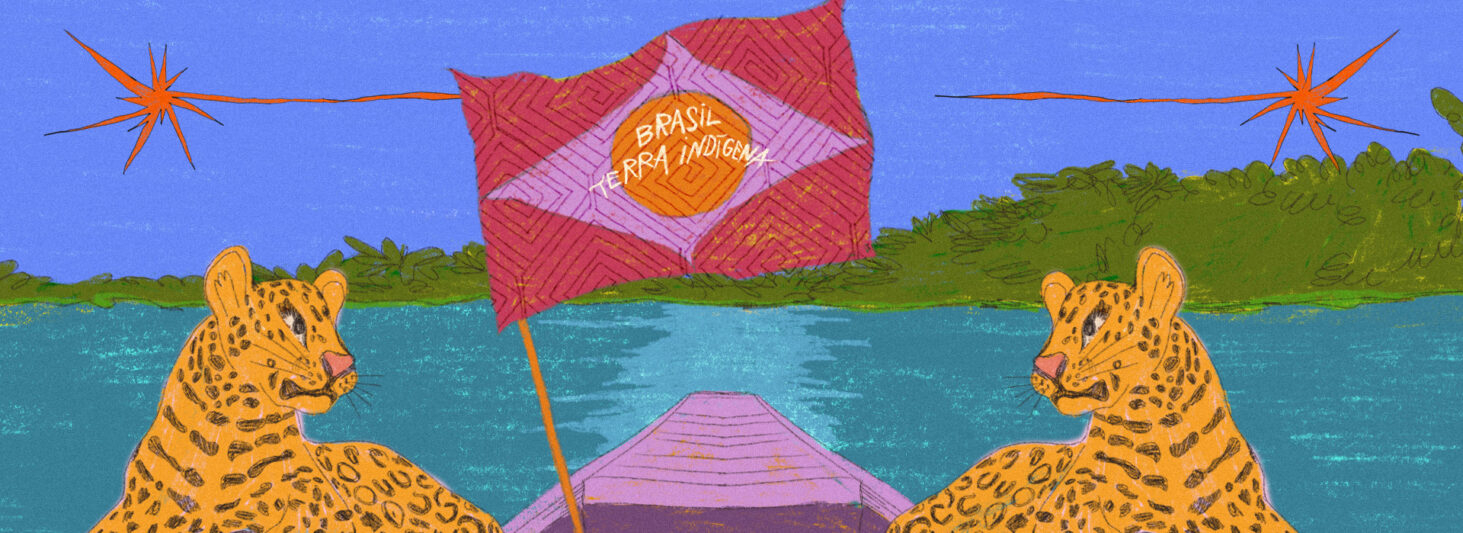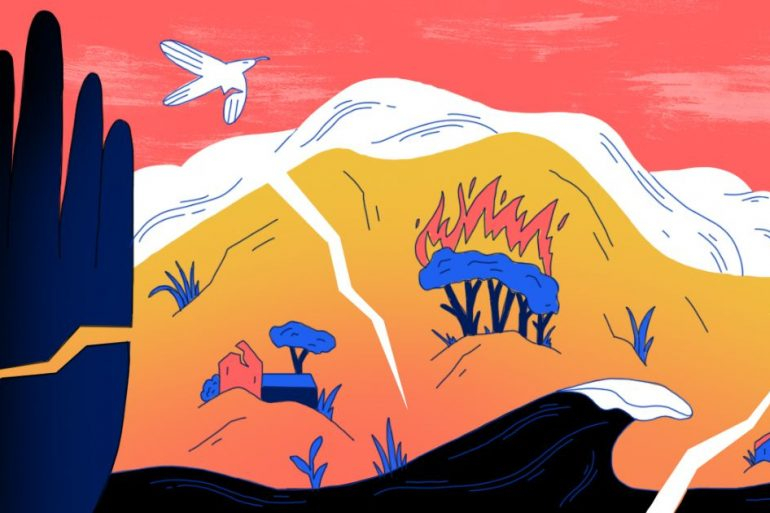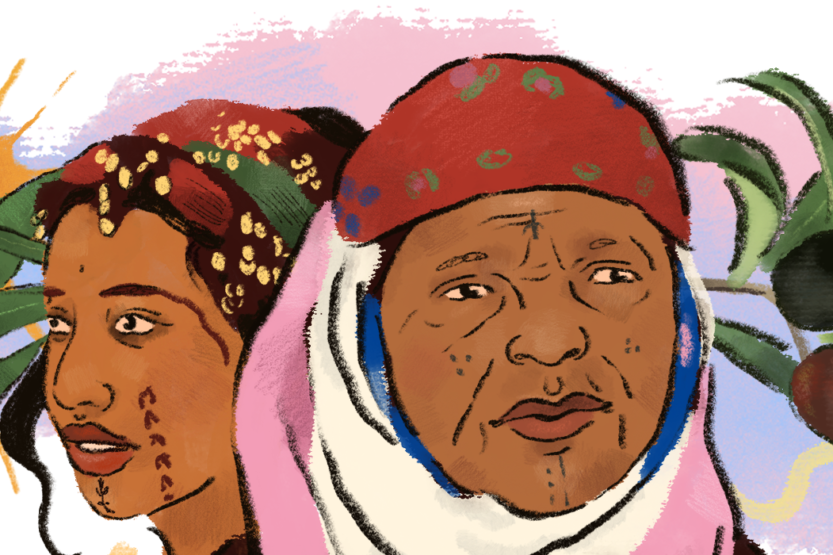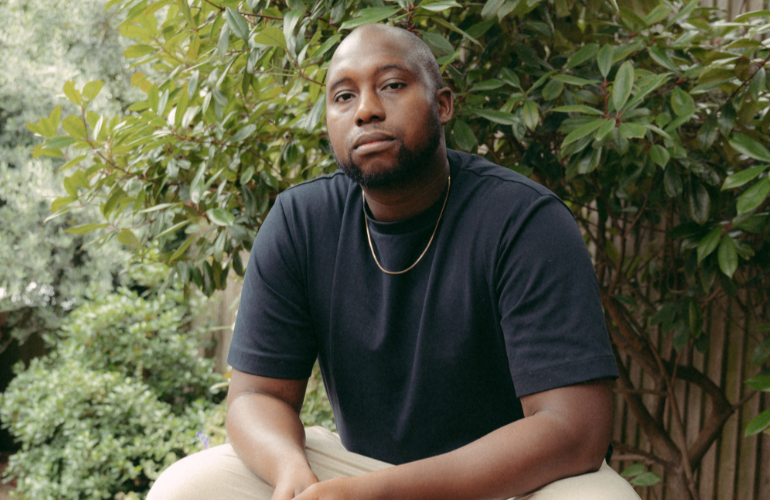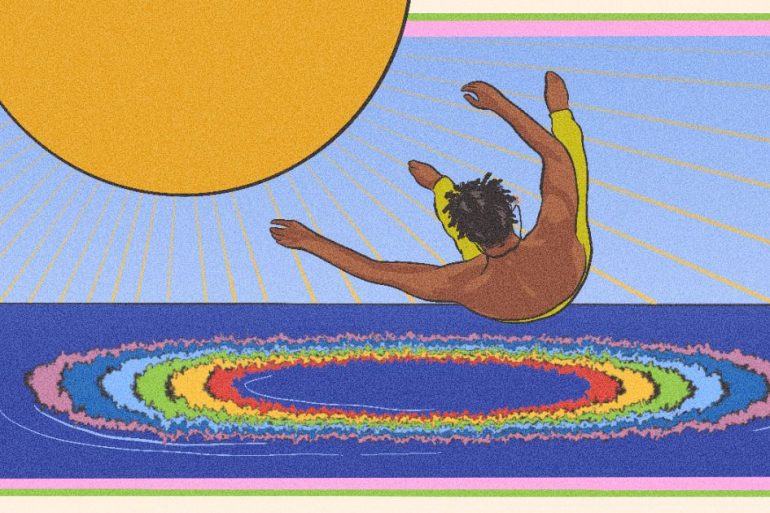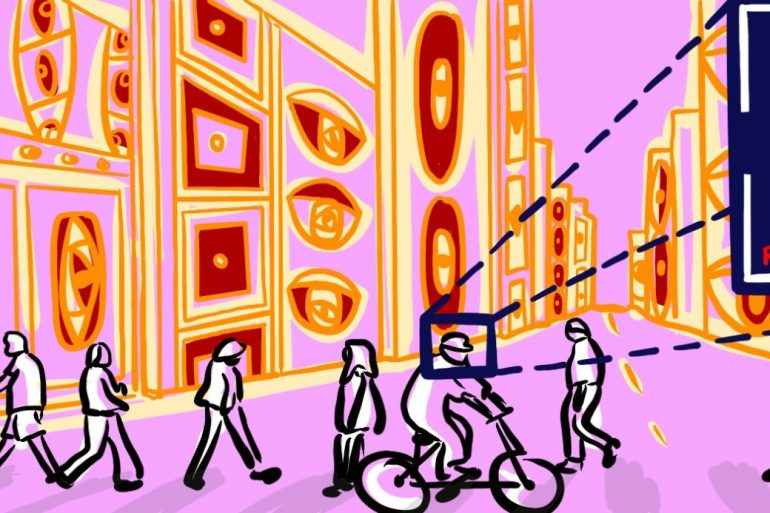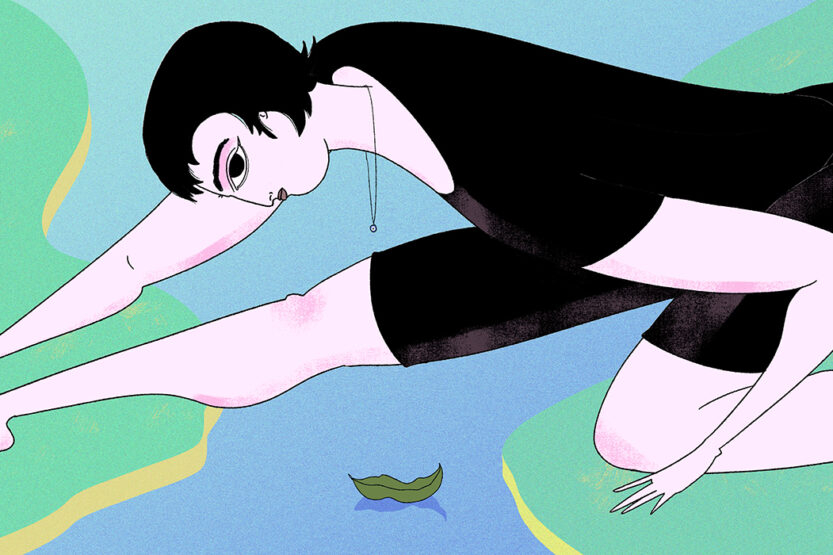Straight off the back of claims of successive legal victories for Indigenous rights in Brazil, you can see why there would be hope that momentum is in the Amazon’s favour. Earlier this year, the Lula administration established the country’s first ever Ministry for Indigenous Peoples and the ministry’s leader, Sonia Guajajara, described it as “a historic moment of reparation in Brazil.”
But not all that glitters is gold. While hearing calls for celebration across the world about the revolutionary potential of this new era for Brazilian politics and Indigenous land rights, it’s hard to shake the feeling that these evaluations are somewhat premature.
Earlier this year, shado connected with Amazonian activists from the Awaete community at the Lush Spring Prize. They shared with us how they and other forest peoples are very much still living through a state of war.
Land invasions by miners, loggers, farmers and agribusiness, evangelicals and researchers from various fields persist, and activists continue to be killed for defending their ancestral lands, and even when invited to decision-making spaces they are tokenised and face structural disadvantages.
In the face of ongoing ethno/ecocide, they have created ‘Casa Ancestral Janeraka Belem’ – a shelter and artistic residency built for and by the Awaete and fellow peoples of the forest to support each other and co-create pathways of decolonisation and regeneration. It enables them to safeguard and archive knowledge of their heritage against cultural erasure, collectively combat one of the most devastating deforestation campaigns in the world on their land, and train their youth to engage with traditional culture in the digital age.
In order to gain more insights into the intergenerational impact of colonisation on peoples of the forest, the threat of eviction their community project faces as a result, as well as the contradictions between meaningful transformation and state-centric political organising – we assembled a team of contributors from shado to initiate a dialogue with Time’i Assurini- a pajé (shaman) and co-founder of Casa Ancestral and Instituto Janeraka.
Non-binary learning scientist and lecturer Vivek Ramachandran, sustainability educator and climate justice advocate Rhythima Shinde, and shado editor and community organiser Isabella Kajiwara came together to explore the group’s radical approach to land justice which moves beyond notions of ownership and possession that are prevalent in colonial frameworks.
Instead, favouring an Indigenous paradigm that emphasises communal responsibility and kinship with the land, this reality is reflected within the institute’s title ‘Janeraka’, an Awaete word meaning “neither mine nor yours: our house; the house belongs to the one who takes care of it.”
Colonisation through the eras
As a member of the Awaete community, Time’i shared his concerns with us about the colonial nature of the Amazonian Dialogues earlier this year – a summit supposedly created to strengthen ‘Amazon governance.’
“From the start of the meeting, many things were veiled,” he explained, revealing his disappointment at discovering that closed-door meetings between organisations that built the event and COIAB, APIB, and the Secretary of Indigenous Culture had been ongoing for quite some time before.
With decolonial methodologies and ethics of co-creation, mediation, and dialogue at the heart of their own project, it was no surprise that they took issue with the event’s fragmented structure, lack of transparency, and centralisation of power.
Understandably, the peoples of the forest have considerable distrust for the state and outsiders. Ethnocide has been occurring since first contact with colonisers which was marked by violent invasions of their land for the purpose of profit and extraction.
One example of the violence of colonisation was the construction of the Trans-Amazonian highway in the 1970s, under the supervision of the Brazilian military dictatorship, where almost all the Awaete people were massacred.
The long-term catastrophic environmental damage and consequences this construction caused on the region was accompanied by the introduction of non-Indigenous logic, bureaucracy, money and power. Time’i expressed deep sorrow about this during our conversations, sharing that “the entry of businessmen and the state brought sadness…genocide, ethnocide, epistemicide, society’s abandonment, depression and alcoholism took hold of us.”
This cycle is often replicated when Indigenous communities are uprooted and displaced from their land and introduced to coloniser’s consumption habits, leading to mental health struggles such as depression, substance abuse and suicide. Studies reveal that this suffering stems from historical colonisation, which deliberately and systemically erodes the community’s existing social, cultural, economic, and political structures. Could this be why depression is the disease of the century in a world of mostly colonised cultures and societies?
Moreover, there is an inextricable link between environmental and cultural destruction in colonial processes, especially as many Indigenous cultures do not perceive the natural world around them to be separate from themselves – and in fact consider non-human entities and land as their relatives. As a result, the decimation and seizure of land constitutes both a material threat to their survival as well as a type of social death. In this context of a socio-environmental war, the defence of the forest is closely related to mental health.
Fragmentation and division of communities
These problems and corruption through contact have only intensified over time with the construction of the Belo Monte hydroelectric dam complex on the Xingu River beginning in 2011, the arrival of the Canadian Belo Sun mining company , the advancement of livestock farming and agribusiness, evangelical missions and other forms of exploitation. These have increasingly diverse physical and virtual operations.
Especially now as we have seen with COP, resources and mobilisation are being used to promote elements such as mining with Valle (a Brazilian state-owned mining company) and other greenwashing ventures, so that Brazilian political leaders can enter OPEC. The Awaete consider them to begin the auction of oil exploration in the Amazon, which will mean destruction not only for their community but for the whole world.
One direct impact of these imperialist ‘advancements’ is the geographical fragmentation of the Awaete people and other forest peoples’ communities. Traditionally, they are used to living together, organising themselves in groups of families spread throughout the territory. However, the appropriation and exploitation of land by farming, agribusiness and mining interests has rendered it almost impossible for peoples of the forest to live, unite and organise together as they once did.
Another divisive force that has come into the picture since first contact is the infiltration of anthropologists, civil servants, and others – who threaten and weaken the existing community’s cohesion with their extractive behaviours.
Subscribe to shado's weekly newsletter
Exclusive event news, job and creative opportunities, first access to tickets and – just in case you missed them – our picks of the week, from inside shado and out.

The motivations behind the anthropologists and outsiders’ interactions with the forest’s peoples are often opportunistic and assistance-oriented, according to Time’i. Information and research are gathered for the visitors’ projects, but mostly on their terms without consideration for Awaete traditions and desires. Afterwards, when the forest peoples ask these self-proclaimed ‘allies’ for help with fundraising and other forms of protection, the outsiders are suddenly nowhere to be seen. Contact appears to be a plan aimed at exploitation and extraction of knowledge, not maintenance and strengthening of the Awaete community.
Regardless of whether or not the anthropologists, civil servants and humanitarians are trying to deceptively cloak their intentions, at the end of the day harm is still caused. “People come and make promises and don’t come back,” Time’i explained to us. Instead of building bridges, these attempts at contact through extractivist and hierarchical relationships erode bonds of trust and make forest communities even more vulnerable. It is no wonder that even with many years of contact with outsiders and even global mobilisation campaigns, Indigenous communities remain ill-prepared to deal with the ever-increasing harassment of their territories.
The intergenerational harm that has been caused by contact in both past, present and future has been of grave concern to Time’i and other forest peoples, who recognise how the spirit of colonialism continues to evolve and live on through land dispossession as well as cultural erasure.
Dispossession of culture and language
During our conversation Time’i recounts how the continued dispossession of his people’s culture and language since their first contact with the Brazilian state over half a century ago was accompanied by the imposition of evangelical Christianity and Portuguese in all aspects of Awaete lives.
“There have also been major changes with the lack of spiritual connection with the forest,” Time’i explains, “which has led to major consequences such as illnesses appearing.”
Time’i’s words reveal what we have witnessed time and again when Indigenous communities are colonised – they are robbed of their land, and in turn, dispossessed of their health and their culture because of how interdependent they are.
The health crisis, triggered initially by diseases introduced through contact with missionaries and later compounded by the state, has worsened due to the shift from traditional diets to processed foods. Moreover, poorly planned transitions in housing – from straw dwellings with functional sanitation to concrete houses lacking basic facilities – have exacerbated these issues.
Whether it is the banning of the native language or the forced separation of children from their families, cultural dispossession in Indigenous communities sows divisions among generations, ultimately orphaning them from their roots. According to Time’i, this dispossession or “spiritual disconnection” takes the ugly form of newly-built schools retelling distorted versions of their sacred stories to the younger generations.
These stories are emblematic of that deep cultural connection to their land and the beings they share it with. As Time’i’s explains, “we live in a world shared with the invisible, so we need to talk to the guardian spirits of the woods, rivers, animals and plants.”
Recognising that their community was at a cultural crossroads, immediate action was needed to reclaim their sense of agency and pave the way for ethical, decolonial, and regenerative efforts that would foster a co-creative culture on their own terms.
Indeed, the challenge was clear – act swiftly to prevent their culture from becoming a relic or a mere spectacle. Amidst the ongoing assault on Indigenous lives globally through systemic barriers that have led to mass incarceration and mental health issues, from the Amazon to Palestine, this radical act of self-determinism has become a rallying cry in each community.
Instituto Janeraka – neither mine nor yours, our house
Casa Ancestral Janeraka Belém is a place for the community to feel safe. “It seeks dialogue and to understand and demonstrate that, no matter how many problems we have, we just need to feel safe to show what’s inside us,” says Time’i.
According to Time’i, the core of their work is based on the belief that by acquiring and maintaining the three ancestral connection points in the Indigenous territory – the Janeraka village, Casa Janeraka Altamira and Casa Ancestral Janeraka Belém – they have been able to “dialogue with strategic zoning, giving new meaning to the flows of action in our territory that leave from and pass through these regions.”
Casa Ancestral Janeraka Belém relies on the community’s autonomous organisation as its foundational pillar, where traditional knowledge, cultural practices, and community welfare converge. It is a place to decolonise and regenerate their relationships and prepare for new futures.
Casa Janeraka Altamira or ‘Home for the Marytykwawara family’ is a space for survivors of contact, the last spiritual leaders of the people, and doctors of Awaete science to recreate the community’s traditional culture and socio-political structure that was disrupted by colonisation, serving the community’s interests rather than external ones.
At the Janeraka village, the Awaete’s needs are more fundamental – their priority is to establish essential and resilient infrastructure for sanitation, renewable energy production, and ensuring food security. When it comes to approaching the dependency on external institutions for these needs, Time’i recommends a cautious approach in adapting the external support while maintaining the documentation of territorial protection.
Located in the most deforested region in the world, their territory of almost 400,000 hectares is located at the heart of the problems and solution of the climate crisis.
To preserve and revitalise the Awaete language, currently spoken by fewer than 200 people and passed on through the oral tradition, the Instituto Janeraka has been seeking partners to create their own autonomous ethnographic collection as well as to make them accessible to their youth to encourage them to reconnect with their traditions, language, and culture.
Casa Janeraka Belem also functions as an embassy and a museum. It is an extension of the Awaete university, where training cycles take place with the Collective of Autonomous Researchers of Awaete Science and their partners from the Ancestral Constellation Network, where they are organising the technical reserve and the ethnographic collection.
Call to action
Through numerous multimedia platforms including podcasts series and digital knowledge repositories, the Instituto Janeraka has played a vital role in decolonising Awaete heritage for the Awaete people themselves. Additionally, the Institute’s artistic endeavours, such as the Kujy Ete Women’s Collective’s project “Ka’a Body: Cosmovision of the Rainforest” for an international exhibition of Indigenous art, have woven a rich tapestry reflecting this heritage.
In recognition of the numerous projects that emphasise the empowerment and sovereignty for the Awaete, the Instituto Janeraka was awarded the 2023 Lush Spring Prize for Ancient and Indigenous Wisdom.
However, despite these successes in creating a sanctuary for many, Casa Ancestral Janeraka Belem, with its beautiful backyard, a bird nursery and a place to perform rituals and bonfires, faces a grim reality – eviction.
They pay a monthly rent of R$3300.00 (~532 GBP), but the landlord will not accept payment in the institute’s name and plans to sell the property. To tackle this, they started a crowdfunding campaign. Local political tensions make securing a permanent home crucial, but the campaign is still far from its goal. They urgently need support to maintain stability in their collective efforts in Belem, the capital of the state that has deforested the Amazon the most for decades, with a governor who will host COP30.
Horizons of solidarity in struggle
Instituto Janeraka relies on international visibility and global solidarity to sustain their efforts against the arm of systemic exploitation. However, fostering support has its own obstacles.
“I get tired of having to be a politician or a digital influencer to have a voice in something that has been so media-tised,” Time’i confesses as he relays his frustration with large humanitarian organisations that preferentially provide those with opportunistic connections a platform for their political and financial interests.
This is also due to a lack of knowledge and involvement, especially on the part of those with large donations. When they do receive financial support from these organisations, the funds typically end up either with intermediary institutions that are not connected with the grassroots movement or individuals who do not have a collective sense of responsibility for the community.
Out of desperation, the Awaete are forced to give into harassment from the Carbon Credit market, a state response to Amazonian deforestation but which is at odds with national justice bodies such as the MPF and FUNAI for putting the sovereignty of Indigenous territory at risk.
NGOs profit off of the community, by selling their knowledge of the territories to geo-mapping firms – built with the argument of protecting the territory, but in reality producing information for production chains. To make matters worse, these NGOs don’t regularly participate or include the community in their knowledge-building methodologies, and they deny the forest peoples access to this knowledge when it is rebranded as “Social-Biodiversity” products.
As well as partners that align with their values, the Instituto Janeraka requires our support to overcome these challenges if it intends to create more Houses of Welcome and Artistic Residencies in locations accessible to people in the forest. Time’i tells us that in such a globalised world, it is vital to create autonomous but interconnected Indigenous spaces that strategically decolonise their homelands by both reclaiming territories and their Indigenous agency.
Countering the systematic machinery of colonisation requires active engagement on a physical and a spiritual level, between partners with shared aspirations. The Instituto Janeraka positions itself as a decolonial space for those partners to gather and share their different perceptions of the world. This is possible because the institute philosophically echoes the community elders’ ability to seamlessly integrate science and spirituality in nature, while disregarding the supposed dichotomy between the two.
Speaking about their oral tradition, Time’i says, “Through our voice, many voices come […] Within these voices, we bring knowledge that comes from our soul. ” It is this ethos that makes the practice of receiving divergent viewpoints viable because it recognises the intrinsic knowledge and value of each partner’s lived experiences in their pursuit of common struggles.
The Institute stands out in its efforts to channel these experiences to simultaneously decolonise their spaces and reclaim their Indigenous identity. Elaborating on this, Time’i adds, “We have a lot to decolonise and regenerate, but in order to do so we need to access what strengthens and regenerates us more intensely than we have accessed what destroys and silences us. ”
In the heart of the Amazon, amidst the challenges of socio-environmental war, the Instituto Janeraka collective emerges as a beacon of hope for the Awaete people, working with ethical principles of heritage education, decolonisation and regeneration, carried out in parallel to meet the diverse demands of mental health in the socio-environmental war.
Their fight for sovereignty over several generations mirrors the shared struggles of Indigenous communities across the world – the desire to tell their narratives on their land and decide their future for themselves.
What can you do?
Learn more about the Awaete community:
- Instituto Janeraka
- Agenda Awaete
- Casa Ancestral Janeraka
- Donate to their crowdfunding campaign to avoid eviction at Casa Belém
- Contact details:
- Phone +55 91 999210426 (Whatsapp/Telegram)
- Email: janerakaawaete@gmail.com
Follow media that highlight the actions of the Awaete:
- Instituto Janeraka (Spotify, Instagram, Youtube, Portfolio)
- Marytykwawara Family
- Ethnomusicology UFPA
- Radio Emergir
Read
- Between the city and the village, indigenous struggle for the survival of the Assurini of the Xingu
- Assurini of the Xingu will be the first to give an Indigenous language workshop at Casa da Linguagem do Pará
- Pajé Timei produces podcast with Awaete narratives of recent contact
- Instituto Janeraka wins the 2023 Lush Spring Prize
- Txjaju Petiwu: Awaete Narratives to Regenerate
- Strengthening the narratives of the genocide, the story that history did not tell
- Uyra Maraka Kauyra’upy: songs of the young warrior birds
- How Indigenous land defenders are leading the fight against extraction in Ecuador
